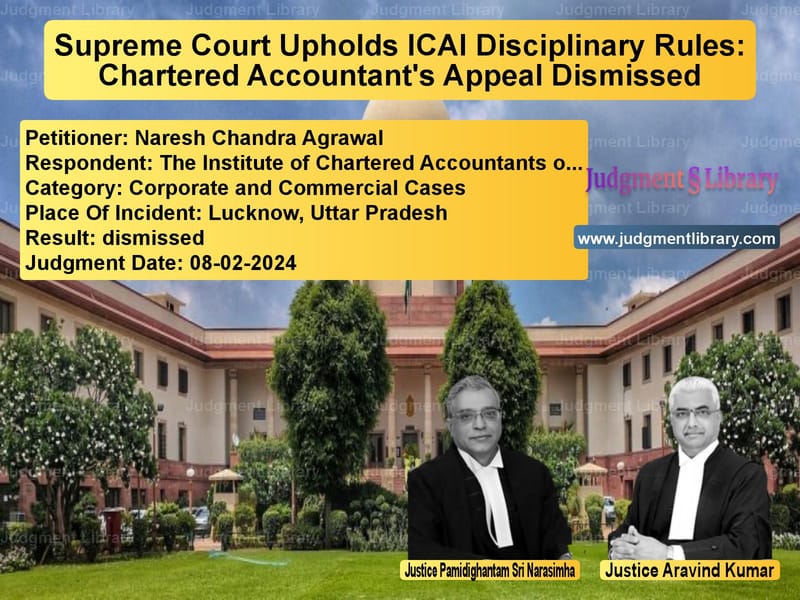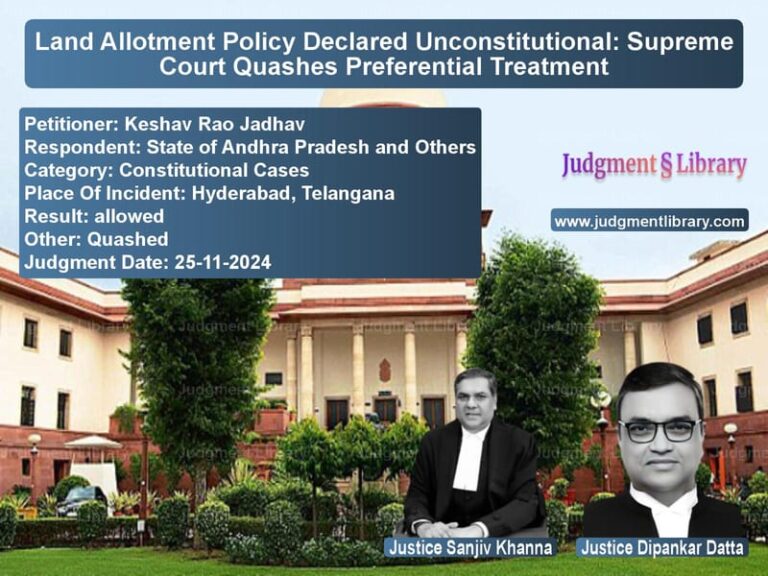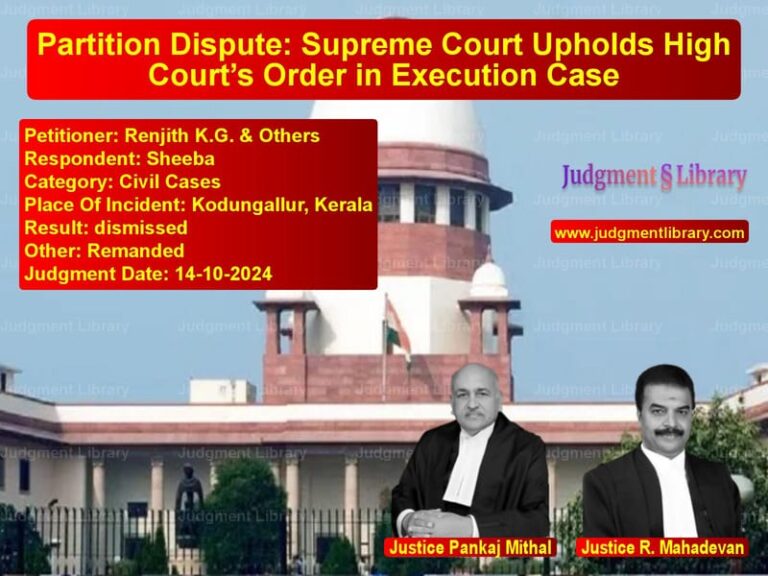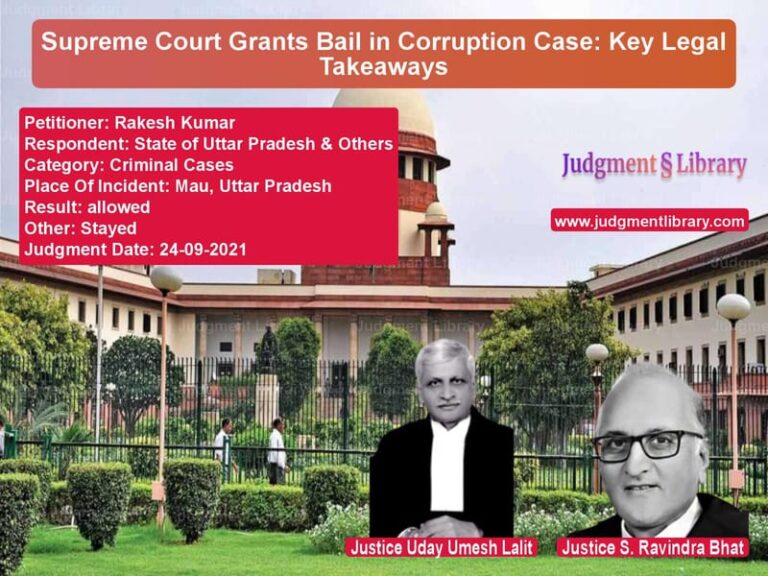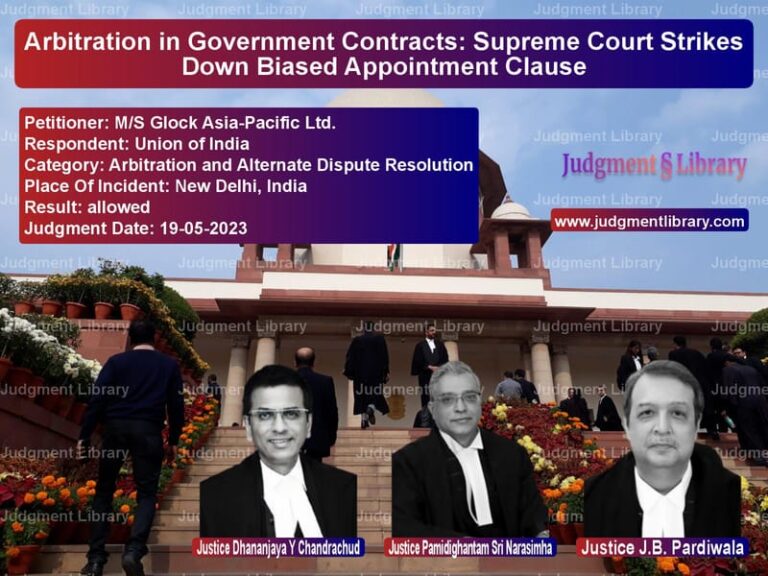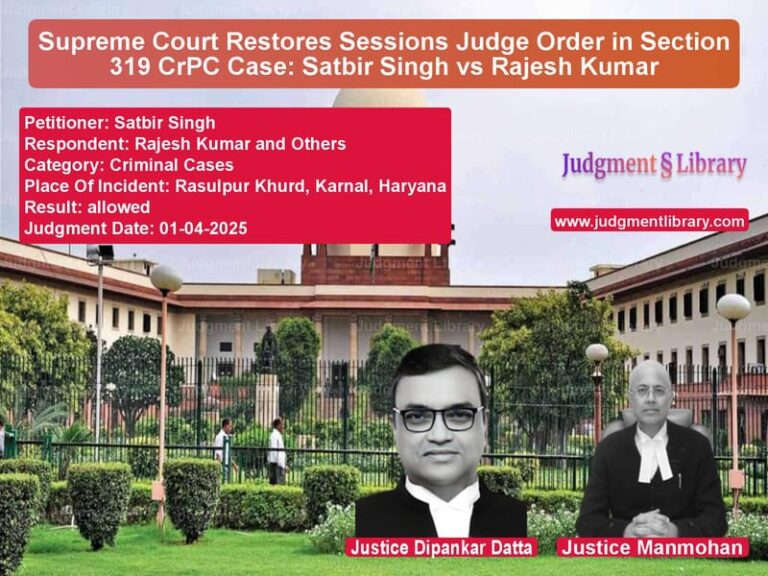Supreme Court Upholds ICAI Disciplinary Rules: Chartered Accountant’s Appeal Dismissed
The Supreme Court of India, in its judgment on Naresh Chandra Agrawal v. The Institute of Chartered Accountants of India, addressed crucial legal questions concerning the disciplinary powers of the Institute of Chartered Accountants of India (ICAI). The case revolved around whether Rule 9(3)(b) of the Chartered Accountants (Procedure of Investigation of Professional and Other Misconduct and Conduct of Cases) Rules, 2007, was ultra vires the parent Act.
The Court ultimately dismissed the appeal and upheld the disciplinary mechanism, ruling that ICAI’s Disciplinary Committee has the authority to review complaints and proceed with investigations even if the Director (Discipline) finds no prima facie case of misconduct.
Background of the Case
The case stemmed from allegations against the appellant, Naresh Chandra Agrawal, a chartered accountant, who was responsible for auditing the Sahara India branch of the Bank of Rajasthan. The complainant bank accused the audit firm of failing to report irregular financial transactions in its monthly audit reports.
The complaint alleged that on September 27, 2009, significant irregular transactions took place in certain accounts at the bank’s Lucknow branch. However, the appellant, who was responsible for reviewing these transactions, failed to flag them in the audit report.
Proceedings Before ICAI
Following the complaint:
- The Director (Discipline) of ICAI conducted an inquiry and found no prima facie case of misconduct against the appellant.
- The Board of Discipline disagreed with this finding and referred the case to the Disciplinary Committee for further investigation.
- The appellant challenged this action before the Delhi High Court, arguing that Rule 9(3)(b) exceeded the ICAI’s powers under the Chartered Accountants Act, 1949.
- The High Court rejected the petition, leading to an appeal before the Supreme Court.
Petitioner’s Arguments
The appellant, represented by legal counsel, contended that:
- Once the Director (Discipline) concluded there was no prima facie case, the Board of Discipline could only either close the matter or order further investigation, but not directly refer it to the Disciplinary Committee.
- Rule 9(3)(b) was ultra vires the Chartered Accountants Act, as it gave the Board the power to bypass the Director (Discipline) and assume the role of an investigating agency.
- Delegated legislation (such as the ICAI Rules) cannot provide for any action that is not contemplated in the parent statute.
Respondent’s Arguments
ICAI, through its counsel, defended the validity of Rule 9(3)(b) and argued that:
- If the appellant’s argument were accepted, it would mean that the Director (Discipline), who is only a secretary to the Board, would have greater power than the Board itself.
- The Board’s authority to refer cases to the Disciplinary Committee is implicit in the scheme of the Act.
- The legislature could not have intended for the Director’s opinion to be final and binding on the Board, as it would render the disciplinary mechanism ineffective.
Supreme Court’s Observations
The Supreme Court examined the relevant provisions of the Chartered Accountants Act, 1949, and the 2007 Rules. The Court observed that:
- The Chartered Accountants Act establishes a three-tier mechanism: the Director (Discipline), the Board of Discipline, and the Disciplinary Committee.
- Section 21A(4) of the Act allows the Board of Discipline to disagree with the Director’s opinion and order further investigation.
- Rule 9(3)(b) enables the Board to either direct further investigation or refer the matter to the Disciplinary Committee.
- The legislature intended the Board of Discipline to exercise oversight and ensure that professional misconduct does not escape scrutiny due to an erroneous opinion by the Director.
Important Excerpts from the Judgment
The Court, while upholding the ICAI’s authority, ruled:
“The Board of Discipline cannot be bound by the Director (Discipline)’s opinion. If that were the case, it would effectively strip the Board of its independent power to ensure professional accountability.”
On the argument that the Board exceeded its jurisdiction, the Court stated:
“Rule 9(3)(b) is not ultra vires the parent Act. The Board of Discipline, as a statutory body, has the power to take an independent view and refer matters to the Disciplinary Committee.”
The Court further emphasized:
“The objective of the Chartered Accountants Act is to uphold professional integrity. The rules framed under the Act must be interpreted in a manner that strengthens this objective.”
Final Verdict
The Supreme Court dismissed the appeal and upheld ICAI’s decision to proceed with disciplinary action against the appellant. The ruling clarified that the ICAI’s disciplinary bodies have the power to override the Director (Discipline) and initiate further proceedings when necessary.
Implications of the Judgment
This judgment strengthens ICAI’s regulatory role in maintaining professional standards in the field of chartered accountancy. The key takeaways are:
- The Director (Discipline)’s findings are not binding on the Board of Discipline.
- The Board has the authority to refer cases to the Disciplinary Committee even when the Director finds no misconduct.
- ICAI’s disciplinary rules are consistent with the Chartered Accountants Act, ensuring a robust mechanism for addressing professional misconduct.
Conclusion
The Supreme Court’s decision reinforces the importance of accountability and regulatory oversight in the accounting profession. By upholding ICAI’s disciplinary framework, the judgment ensures that professional misconduct cases undergo proper scrutiny, thereby preserving public trust in the institution of chartered accountancy.
Petitioner Name: Naresh Chandra Agrawal.Respondent Name: The Institute of Chartered Accountants of India and Others.Judgment By: Justice Pamidighantam Sri Narasimha, Justice Aravind Kumar.Place Of Incident: Lucknow, Uttar Pradesh.Judgment Date: 08-02-2024.
Don’t miss out on the full details! Download the complete judgment in PDF format below and gain valuable insights instantly!
Download Judgment: naresh-chandra-agraw-vs-the-institute-of-cha-supreme-court-of-india-judgment-dated-08-02-2024.pdf
Directly Download Judgment: Directly download this Judgment
See all petitions in Corporate Compliance
See all petitions in unfair trade practices
See all petitions in Judgment by P.S. Narasimha
See all petitions in Judgment by Aravind Kumar
See all petitions in dismissed
See all petitions in supreme court of India judgments February 2024
See all petitions in 2024 judgments
See all posts in Corporate and Commercial Cases Category
See all allowed petitions in Corporate and Commercial Cases Category
See all Dismissed petitions in Corporate and Commercial Cases Category
See all partially allowed petitions in Corporate and Commercial Cases Category

